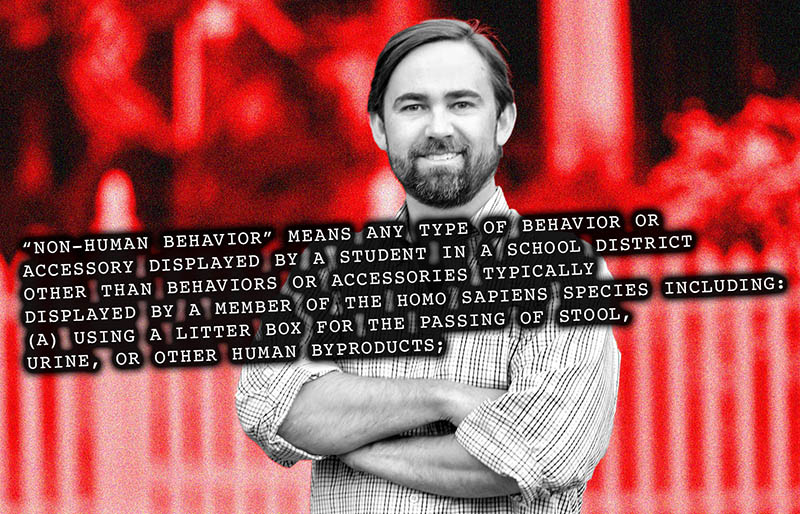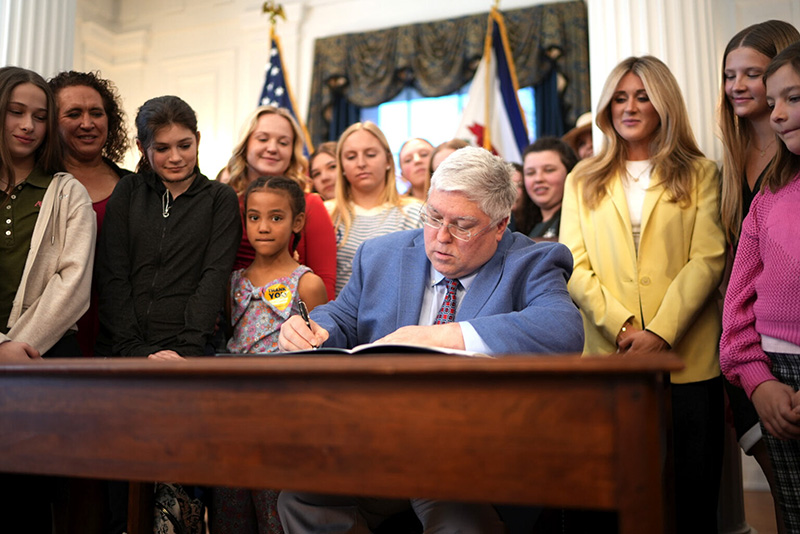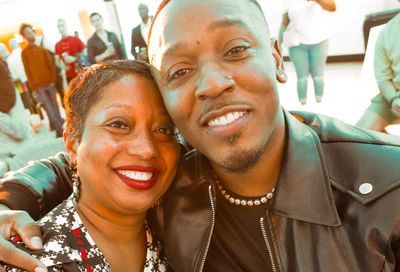Share Our Values
News Analysis: As voters look for candidates who share their moral sense, some new possibilities emerge for the way LGBT issues play in politics
The voters were focused intently on the message sent by the speaker, seeking affirmation that their candidate would pursue a moral path if successful in winning the presidential election in 2012.
Servicemembers in attendance were praised by politicians onstage for their service, more than one person raised the specter of the Supreme Court to the crowd, and family values were a constant source of discussion.
But when President Barack Obama finished speaking to the Human Rights Campaign audience at the Washington Convention Center Oct. 1, he hadn’t gone all the way. There was, in fact, no discussion of marriage equality. He left that to HRC President Joe Solmonese and New York City Mayor Michael Bloomberg.
He did, however, talk about the Defense of Marriage Act, telling the crowd, ”My administration is no longer defending DOMA in the courts. I believe the law runs counter to the Constitution, and it’s time for it to end once and for all. It should join ‘Don’t Ask, Don’t Tell’ in the history books.”
Less than a week later, a similar – if cynically inverted – scene played out at D.C.’s Omni Shoreham Hotel when Obama’s would-be Republican challengers – from Texas Gov. Rick Perry, former Massachusetts Gov. Mitt Romney and Herman Cain to Rep. Michele Bachmann (Minn.) and Rep. Ron Paul (Texas) to former House Speaker Newt Gingrinch (Ga.) and former Sen. Rick Santorum (Pa.) – addressed the Family Research Council’s Values Voter Summit.
As with Obama (in reverse), none of the main challengers went ”all the way” on the anti-LGBT agenda. They left that to folks such as Robert Jeffress, the First Baptist Church of Dallas pastor; the American Family Association’s Bryan Fischer; and Rep. Steve King (R-Iowa).
They did, however, talk about DOMA.
 Saying, ”It’s so important to preserve traditional marriage,” Romney told the crowd, ”I will appoint an attorney general who will defend the bipartisan law passed by Congress and signed by Bill Clinton, the Defense of Marriage Act.” When discussing the military, though, the leading Republican presidential candidate made no mention of the repeal of ”Don’t Ask, Don’t Tell” that took place weeks earlier.
Saying, ”It’s so important to preserve traditional marriage,” Romney told the crowd, ”I will appoint an attorney general who will defend the bipartisan law passed by Congress and signed by Bill Clinton, the Defense of Marriage Act.” When discussing the military, though, the leading Republican presidential candidate made no mention of the repeal of ”Don’t Ask, Don’t Tell” that took place weeks earlier.
Cain, like Romney, poked at Obama’s decision to stop defending DOMA, saying, ”I believe that marriage is between one man and one woman. And I would not have asked the Department of Justice to not enforce it. I would have asked the Department of Justice to enforce the Defense of Marriage Act.” Cain didn’t mention DADT.
Perry, for all his red meat thrown out to the crowd about tax cuts and pro-life beliefs, didn’t mention DADT, either. Nor, though, did he even mention DOMA – or his established position that only marriages between one man and one woman ought to be recognized.
Yes, there are significant differences between the type of discussions going on in each room – and with the fact that Obama was avoiding an unpopular position with the crowd in the room, whereas the GOP candidates were avoiding letting word about a popular position within the room become news outside the room.
But, this remains: Among the three candidates leading in the most recent national polling, none of them mentioned reinstating DADT and none mentioned a federal constitutional amendment – or the state constitutional amendments pending in North Carolina and Minnesota – to prohibit same-sex marriages.
Why?
At its simplest: The technology of the time – specifically, the ”caught on videotape” reality that pushes such conferences outside their walls – prevents the blunt assessments candidates used to be willing to give to ”friendly” crowds.
Unpacking that presents a more hopeful possibility. Even though strongly anti-LGBT positions might help candidates win at least some Republican primaries, candidates are starting to learn – from the reaction to the (real or exaggerated-by-the-acoustics) ”boos” at a gay servicemember, to the changing poll numbers on marriage equality – that there’s no long-term strategy for winning that includes extremist anti-LGBT stands.
As Perry told the audience, ”There is no voter in America who is not a value voter. It’s just a question of whose values that they share.”
Support Metro Weekly’s Journalism
These are challenging times for news organizations. And yet it’s crucial we stay active and provide vital resources and information to both our local readers and the world. So won’t you please take a moment and consider supporting Metro Weekly with a membership? For as little as $5 a month, you can help ensure Metro Weekly magazine and MetroWeekly.com remain free, viable resources as we provide the best, most diverse, culturally-resonant LGBTQ coverage in both the D.C. region and around the world. Memberships come with exclusive perks and discounts, your own personal digital delivery of each week’s magazine (and an archive), access to our Member's Lounge when it launches this fall, and exclusive members-only items like Metro Weekly Membership Mugs and Tote Bags! Check out all our membership levels here and please join us today!





















